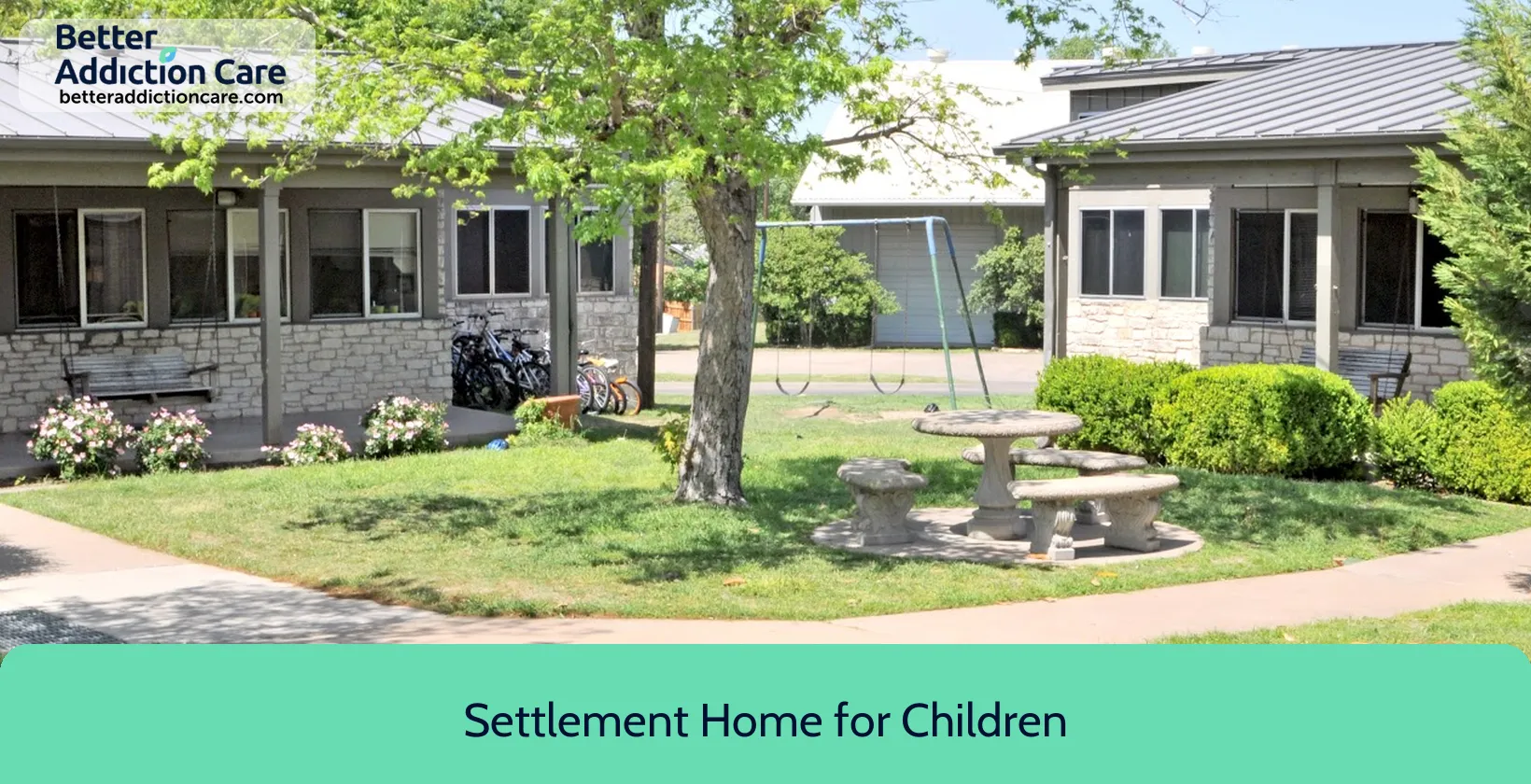Overview
Settlement Home for Children is a mental health treatment center for people seeking treatment near Travis County. As part of their treatment modalities for recovery, Settlement Home for Children provides couples/family therapy, group counseling, and cognitive behavioral therapy during treatment. Settlement Home for Children is located in Austin, Texas, accepting medicaid for treatment.
Settlement Home for Children at a Glance
Payment Options
- Medicaid
- State welfare or child and family services funds
- State corrections or juvenile justice funds
- Cash or self-payment
Assessments
- Comprehensive mental health assessment
- Comprehensive substance use assessment
Age Groups
- Young adults
- Children/adolescents
Ancillary Services
- Case management service
- Diet and exercise counseling
- Education services
- Family psychoeducation
- Suicide prevention services
Highlights About Settlement Home for Children
6.62/10
With an overall rating of 6.62/10, this facility has following balanced range of services. Alcohol Rehabilitation: 8.00/10, Drug Rehab and Detox: 6.00/10, Insurance and Payments: 6.00/10, Treatment Options: 6.49/10.-
Alcohol Rehabilitation 8.00
-
Treatment Options 6.49
-
Drug Rehab and Detox 6.00
-
Insurance and Payments 6.00
Treatment At Settlement Home for Children
Treatment Conditions
- Alcoholism
- Mental health treatment
- Substance use treatment
Care Levels
- Hospital inpatient treatment
Treatment Modalities
- Couples/family therapy
- Group counseling
- Cognitive behavioral therapy
- Dialectical behavior therapy
- Activity therapy
Ancillary Services
Languages
- Spanish
Special Programs
- Children/adolescents with serious emotional disturbance (SED)
Contact Information
Read our Most Recent Article About Drug Addiction
DISCLAIMER: The facility name, logo and brand are the property and registered trademarks of Settlement Home for Children, and are being used for identification and informational purposes only. Use of these names, logos and brands shall not imply endorsement. BetterAddictionCare.com is not affiliated with or sponsored by Settlement Home for Children.









